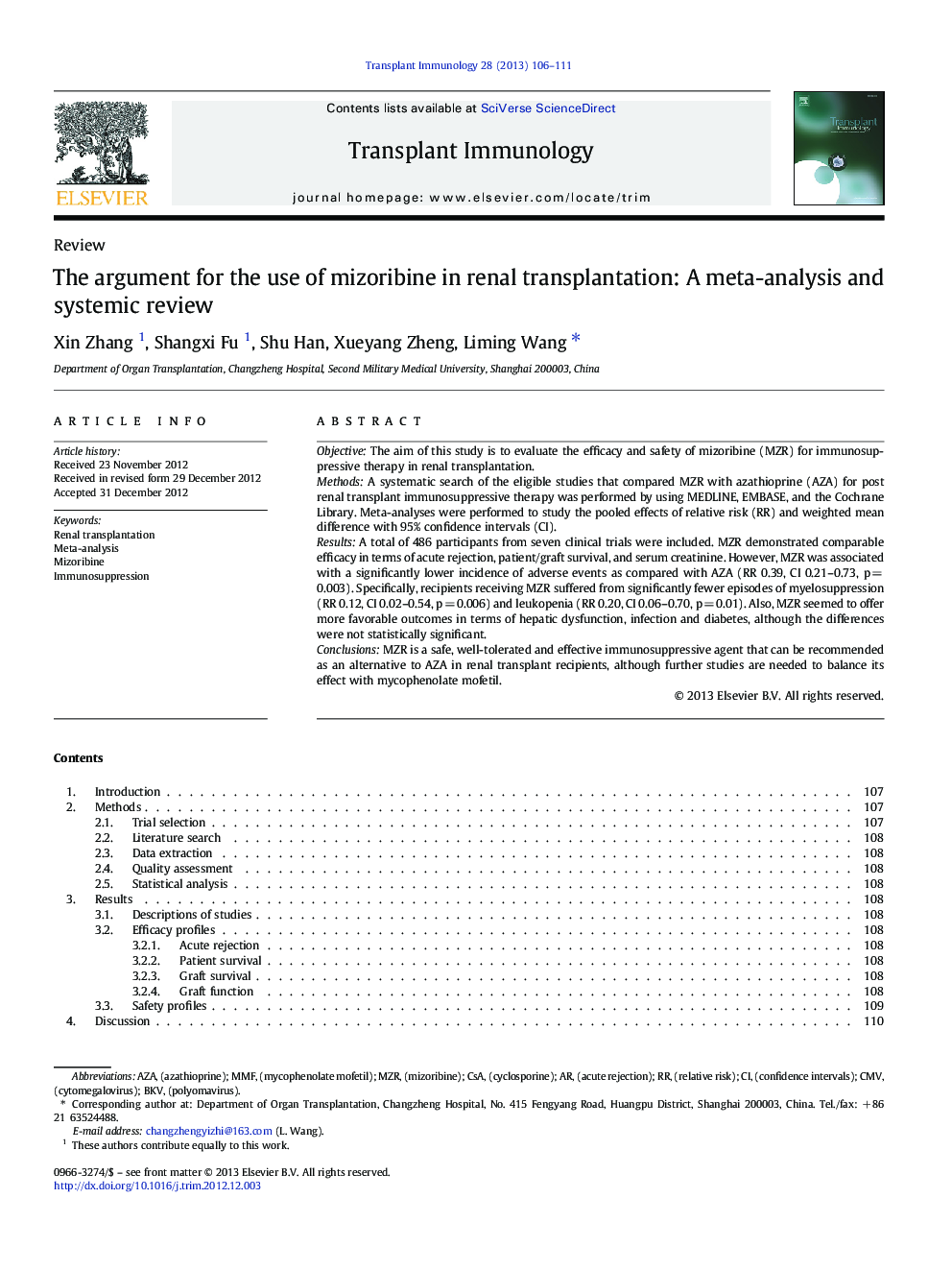| Article ID | Journal | Published Year | Pages | File Type |
|---|---|---|---|---|
| 3392158 | Transplant Immunology | 2013 | 6 Pages |
ObjectiveThe aim of this study is to evaluate the efficacy and safety of mizoribine (MZR) for immunosuppressive therapy in renal transplantation.MethodsA systematic search of the eligible studies that compared MZR with azathioprine (AZA) for post renal transplant immunosuppressive therapy was performed by using MEDLINE, EMBASE, and the Cochrane Library. Meta-analyses were performed to study the pooled effects of relative risk (RR) and weighted mean difference with 95% confidence intervals (CI).ResultsA total of 486 participants from seven clinical trials were included. MZR demonstrated comparable efficacy in terms of acute rejection, patient/graft survival, and serum creatinine. However, MZR was associated with a significantly lower incidence of adverse events as compared with AZA (RR 0.39, CI 0.21–0.73, p = 0.003). Specifically, recipients receiving MZR suffered from significantly fewer episodes of myelosuppression (RR 0.12, CI 0.02–0.54, p = 0.006) and leukopenia (RR 0.20, CI 0.06–0.70, p = 0.01). Also, MZR seemed to offer more favorable outcomes in terms of hepatic dysfunction, infection and diabetes, although the differences were not statistically significant.ConclusionsMZR is a safe, well-tolerated and effective immunosuppressive agent that can be recommended as an alternative to AZA in renal transplant recipients, although further studies are needed to balance its effect with mycophenolate mofetil.
► MZR is evaluated for post renal transplant immunosuppressive therapy. ► MZR shows comparable efficacy but with fewer adverse events to AZA. ► Further studies are warranted to assess the effect of MZR with MMF.
